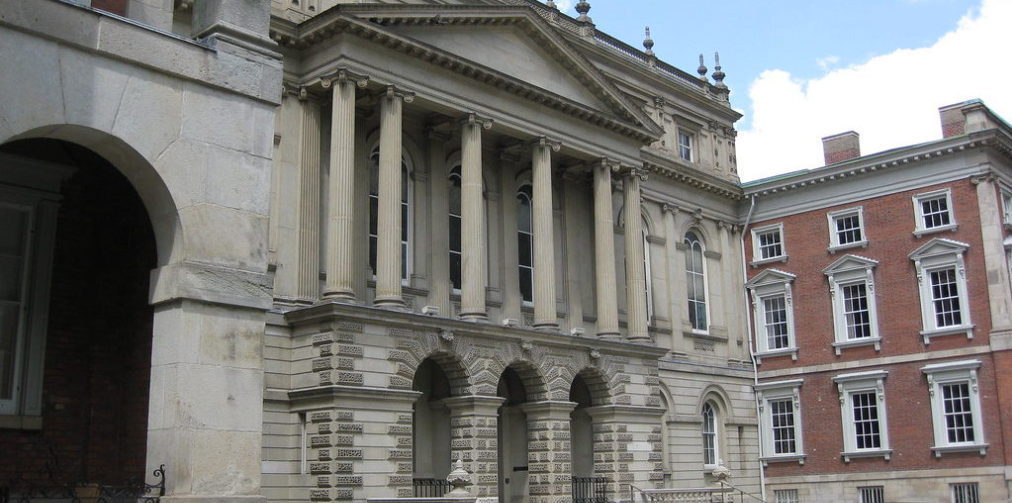- A good example of anti-SLAPP legislation done right - December 15, 2023
- A simpler, faster way to handle defamation actions - October 11, 2023
- ChatGPT’s credibility undermined by ‘hallucinations’ - July 26, 2023
By Paul Russell, LegalMatters Staff • A recent Ontario Court of Appeal decision is a good example of anti-SLAPP legislation being applied properly, says Toronto defamation lawyer Howard Winkler.
“In the case of Volpe v. Wong-Tam, the combination of the motion decision, as modified by the Court of Appeal, gets the current state of the law with respect to the anti-SLAPP legislation right,” says Winkler, principal and founder of Winkler Law.
The judgment explains that s.137.1 of the Courts of Justice Act “seeks to prevent an abuse of process known as “strategic lawsuits against public participation” (SLAPPs): the practice of initiating lawsuits not to vindicate bona fide claims, but rather to deter a party from expressing a position on a matter of public interest or otherwise participating in public affairs … s.137.1 is designed to allow defendants to have strategic or abusive actions – typically defamation proceedings – dismissed at an early stage in order to protect the public interest in freedom of expression.”
“The Ontario government passed anti-SLAPP legislation in 2015 to prevent plaintiffs from silencing critics by filing expensive and time-consuming lawsuits against them where there is no evidence of sufficiently serious harm,” Winkler tells LegalMattersCanada.ca.
Decision ‘perfectly aligned’ with legislation’s goals
“This particular case reflects a classic situation where freedom of expression on a matter of public interest takes precedence over the right of one to protect their reputation, even when there is evidence of actual harm suffered by the plaintiff,” he explains. “This decision is perfectly aligned with the stated objectives of the anti-SLAPP legislation.”
According to court documents, in early 2020 trustees of the Toronto Catholic District School Board (TCDSB) debated policies addressing the pastoral care of students and families who dissented from Roman Catholic teaching about sexuality.
“These policies included measures intended to redress instances of bullying of students who identified as LGBTQ+, such as the proclamation of Pride Month, the raising of the Pride Flag outside TCDSB schools and the Board Administrative Office during Pride Month, and the revision of the TCDSB Code of Conduct to include ‘gender identity, gender expression, family status and marital status’ as protected characteristics,” the judgment reads.
- The ‘extreme arrogance or stupidity’ of the U.S. right
- Judgment shows the financial risks of launching a defamation suit
- In Australia, Google has the last laugh – maybe
Joe Volpe, a former MP and publisher of the Canadian-Italian newspaper Corriere Canadese wrote a “series of articles sharply critical of TCDSB’s proposed policies – and those who advocated for them – on the basis that the policies were inconsistent with Roman Catholic doctrine related to human sexuality,” court documents state.
“He insisted … pastoral care could not include statements or actions that conveyed the message that non-marital sexual acts or transgender identities were consistent with Roman Catholic doctrine … Volpe’s language was intemperate and often profoundly insulting to the respondent trustees and those to whom he referred as ‘LGBT activists’ or ‘the LGBT,’” the judgment states.
Publisher’s statements sparked advertising boycott
In response, Toronto Councillor Kristyn Wong-Tam introduced a Notice of Motion requesting that the City of Toronto censure Volpe and cease advertising in his newspaper.
Volpe then launched a $30-million defamation suit against Tam, other councillors and media outlets, accusing them of falsely labelling him and his newspaper as being transphobic and anti-LGBTQ+.
“It is noteworthy that the court dismissed the action even where the Court of Appeal found, contrary to the motion judge, that actual harm had been suffered by the plaintiff,” says Winkler.
“The lesson to plaintiffs is that it will not be enough in the weighing of interests to show evidence of some harm,” he explains. “A plaintiff must show sufficiently serious harm arising from the expression complained of to overcome the public interest expression.”
Winkler says the timing of this decision coincided with the threat by independent MPP Sarah Jama to sue Premier Doug Ford for defamation.
After the Oct. 7 attack by Hamas against Israel, where more than 1,200 people were killed and about 240 people taken hostage, Jama made statements that were “slammed by members of the government who claimed they indicated support of the terrorist attacks on Oct 7,” the article states.
MP’s comments described as ‘disturbing’
It gave this example of her statements: “We have seen this definition of apartheid in real-time through the continued violation of human rights in Gaza through the use of white phosphorus chemicals, the withholding of access to food, fuel electric (sic) and water, and the destruction of the only exit from Gaza that isn’t controlled by the State of Israel.”
Ford responded by calling her statements “disturbing” while demanding her resignation from the Ontario legislature.
According to the article, Ford depicted Jama as having a “history of antisemitism,” which she argues harmed her reputation.
She gave Ford a time to “formally retract the posts and publicly apologize” or risk facing a libel lawsuit, the article adds.
“In the Volpe decision, the expression related to allegations of homophobic, transphobic and anti-LGBTQ2S+ views,” says Winkler. “The Jama case involves an allegation of anti-Semitic views.
“There is little doubt that the premier’s comments were an expression about a matter of public interest,” he adds. “To overcome the importance of this strong public interest, it would be incumbent on Jama to demonstrate evidence of serious harm arising from the premier’s expression in order for any action by her to survive an anti-SLAPP motion to dismiss.”

